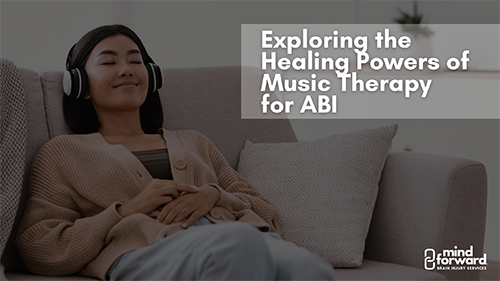Brain injury can have profound and lasting effects on individuals, impacting their cognitive, physical, and emotional functioning. In the journey of rehabilitation, various therapeutic interventions play a crucial role in promoting recovery and improving quality of life. Among these, music therapy stands out as a powerful and versatile tool with numerous benefits for individuals with ABI.
What is Music Therapy?
Music therapy involves the use of musical interventions by a trained therapist to address physical, emotional, cognitive, and social needs. It utilizes the inherent qualities of music, such as rhythm, melody, and harmony, to facilitate non-verbal communication and expression. Tailored to each individual’s specific goals and needs, music therapy offers a holistic approach to rehabilitation.
Cognitive Benefits
One of the primary areas where music therapy excels is in enhancing cognitive function. For individuals with ABI, cognitive impairments such as memory deficits, attention difficulties, and executive dysfunction are common challenges. Music therapy can help improve cognitive skills by engaging various neural pathways and stimulating brain activity. Through activities like singing, playing instruments, and rhythmic exercises, individuals can strengthen their memory, attention, and problem-solving abilities.
Emotional Regulation
Living with an ABI can bring about a range of emotions, including frustration, anxiety, and depression. Music therapy provides a safe and supportive environment for individuals to explore and express their feelings. The emotional resonance of music can help individuals process and cope with their emotions, leading to reduced stress levels and improved mood. Whether through improvisation, song writing, or listening to familiar music, individuals can find solace and comfort in the therapeutic power of music.
Physical Rehabilitation
In addition to its cognitive and emotional benefits, music therapy can also aid in physical rehabilitation. For individuals with motor impairments or speech difficulties resulting from ABI, music-based interventions can help improve motor coordination, strength, and speech articulation. Playing instruments, rhythmic movement exercises, and singing can promote motor control and coordination, leading to increased physical function and independence.
Social Connection
Living with an ABI can sometimes lead to social isolation and feelings of loneliness. Music therapy offers opportunities for social interaction and connection, fostering a sense of community and belonging. Group music-making activities provide a supportive environment where individuals can collaborate, communicate, and build relationships with others who share similar experiences. Through shared musical experiences, individuals can develop social skills, build confidence, and cultivate meaningful connections with peers.
The benefits of music therapy for individuals with acquired brain injuries are vast and multifaceted. From cognitive stimulation and emotional regulation to physical rehabilitation and social connection, music therapy offers a holistic approach to healing and recovery. As we continue to explore the potential of music as a therapeutic tool, it is essential to recognize and embrace its transformative power in supporting individuals on their rehabilitation journey.

